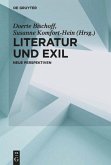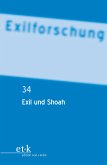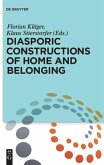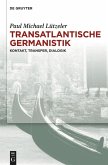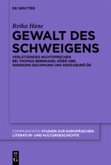This volume opens German-language research on exile to comparative and interdisciplinary studies on exile, and explores an expansion of historical and methodological perspectives that goes beyond the 1933 to 1945 time period and the long-predominant emphasis on anti-fascism. Impulses from other conceptual systems, such as post-colonialism, research in acculturation and transnationalism, translation theory, and cultural scientific research on trauma are successfully invoked to analyze the relationship between literature and exile. The book introduces these newer approaches into the discourse to generate a new impetus for further discussion.
Hat sich im germanistischen Kontext die Exilforschung bislang auf das Exil aus Nazideutschland 1933-45 beschränkt, so geben die in diesem Band versammelten Beiträge neue Impulse zu interdisziplinären und komparatistischen Exilstudien, die Referenzkategorien wie Heimat oder Nation grundsätzlich problematisieren. Vor dem Horizont aktueller Tendenzen von (Massen-)Migration und Globalisierung werden historische Konstellierungen von Exil und Migration, Exil und Diaspora, Exil und Transnationalität in den Blick genommen, wobei vielfach ausdrücklich Bezüge zu jüdischen Erfahrungen und Traditionen des Exils reflektiert werden. Im Fokus stehen dabei u.a. Korrespondenzen zwischen Texten, die ausdrücklich das Exil 1933-45 bezeugen, und neueren Texten, in denen Exil und Transkulturalität in engem Bezug aufeinander verhandelt werden. Einerseits loten die Beiträge die Produktivität unterschiedlicher kulturtheoretischer Paradigmen (z.B. Postkolonialismus, Traumaforschung, Übersetzungstheorie u.a.) für eine zeitgemäße Exilforschung aus. Andererseits werden die Grenzen der Übertragbarkeit von Theorien und Modellen aufgewiesen sowie Möglichkeiten diskutiert, der Spezifität und Singularität von Erfahrungen gerecht zu werden.
Hat sich im germanistischen Kontext die Exilforschung bislang auf das Exil aus Nazideutschland 1933-45 beschränkt, so geben die in diesem Band versammelten Beiträge neue Impulse zu interdisziplinären und komparatistischen Exilstudien, die Referenzkategorien wie Heimat oder Nation grundsätzlich problematisieren. Vor dem Horizont aktueller Tendenzen von (Massen-)Migration und Globalisierung werden historische Konstellierungen von Exil und Migration, Exil und Diaspora, Exil und Transnationalität in den Blick genommen, wobei vielfach ausdrücklich Bezüge zu jüdischen Erfahrungen und Traditionen des Exils reflektiert werden. Im Fokus stehen dabei u.a. Korrespondenzen zwischen Texten, die ausdrücklich das Exil 1933-45 bezeugen, und neueren Texten, in denen Exil und Transkulturalität in engem Bezug aufeinander verhandelt werden. Einerseits loten die Beiträge die Produktivität unterschiedlicher kulturtheoretischer Paradigmen (z.B. Postkolonialismus, Traumaforschung, Übersetzungstheorie u.a.) für eine zeitgemäße Exilforschung aus. Andererseits werden die Grenzen der Übertragbarkeit von Theorien und Modellen aufgewiesen sowie Möglichkeiten diskutiert, der Spezifität und Singularität von Erfahrungen gerecht zu werden.


